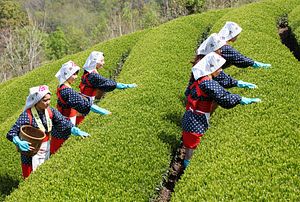In the lead up to the next round of Trans-Pacific Partnership talks slated to start this Thursday in the Canadian capital of Ottowa, it’s useful to look at news that is likely to play a part in how aggressive Japan is in moving forward with the reforms needed to join the trade group.
As of Monday, Japan and the U.S. have resumed bilateral trade talks in Tokyo, to try to iron out differences before larger negotiations resume later this week. While the government of Japanese Prime Minister Shinzo Abe has a lot on its plate this week as it finalizes a Cabinet position on collective self-defense and resumes negotiations with North Korea over its abductees, Japanese participation in the TPP is a key component of Abe’s economic strategy. Japan’s current economic climate will influence how much leeway Tokyo’s delegation will have during negotiations.
The current U.S.-Japanese talks are a good starting point, as they represent the two largest economies to join the potential trade pact. According to the Nikkei Asian Review, they aim to discuss Japan’s tariffs on agricultural products and the auto sector, two areas that are particularly sensitive for these industry’s lobbies in Japan. Those involved in the negotiations say Japan is considering a significant review of its tariff on U.S. pork and beef, but wants safeguards put in place in case imports surge after the pact is implemented. This is only one of Japan’s five protected farm industries, yet progress in one might give Abe’s government leverage in negotiating with the others if the beef and pork sector finds the safeguards satisfactory.
Speaking of protected industries, Japan’s auto sector has continued to surge for the last nine months, with domestic production by the eight major automakers growing 6.1 percent in May year on year, according to Jiji Press. However, that data includes back orders, as the companies were unable to meet demand in the lead up to April’s consumption tax increase. Demand is expected to decrease in June, with a Suzuki Motor Corp. official saying ,“The recent situation of new orders has been severe.” Exports are also down, as automakers have moved a large part of their production overseas. Auto exports for the same time period shrank 10.4 percent while overseas output grew 4.5 percent. Given this data, the industry may not be open to talks on increased competition at home, as domestic sales are driving domestic production. The domestic market is the only place where foreign competition is relatively small and unsubstantial.
Japan’s auto and agricultural sectors would likely face ,major shocks if Japan were to sign on to the TPP. However, the auto industry already boasts strong international competitiveness and a loyal Japanese consumer base. Japan’s farmers also enjoy loyal domestic consumers, yet their small size and aging workforce (the average Japanese farmer is 70) mean they are unable to match large competitors in the U.S., Canada and Australia. Abe’s plan to restructure Japan’s agricultural sector, particularly reforming JA-Zenchu (the powerful agriculture lobby) and allowing non-food companies to increase their share in farming companies, could bolster the competitiveness of this sector for Japan. Given that Japan will likely never be able to achieve food self-sufficiency, a real reduction in agricultural tariffs would be beneficial for Japan’s long-suffering consumers too.
With Japanese economic figures increasingly showing mixed results as Abe’s first two “arrows” begin to reach the limits of their effectiveness, joining the TPP could provide the drastic structural reform necessary to completely reinvent Japan’s economy, as Abe has repeatedly said is his goal. Demographic concerns make this kind of radical reform increasingly necessary. However, the potential short-term displacements from joining the TPP could have political consequences for Abe. If these industries suffer losses under a TPP deal, their powerful lobbies and large constituencies will blame Abe, even if opening up its markets is one of the few options Japan has for escaping two decades of malaise.
































